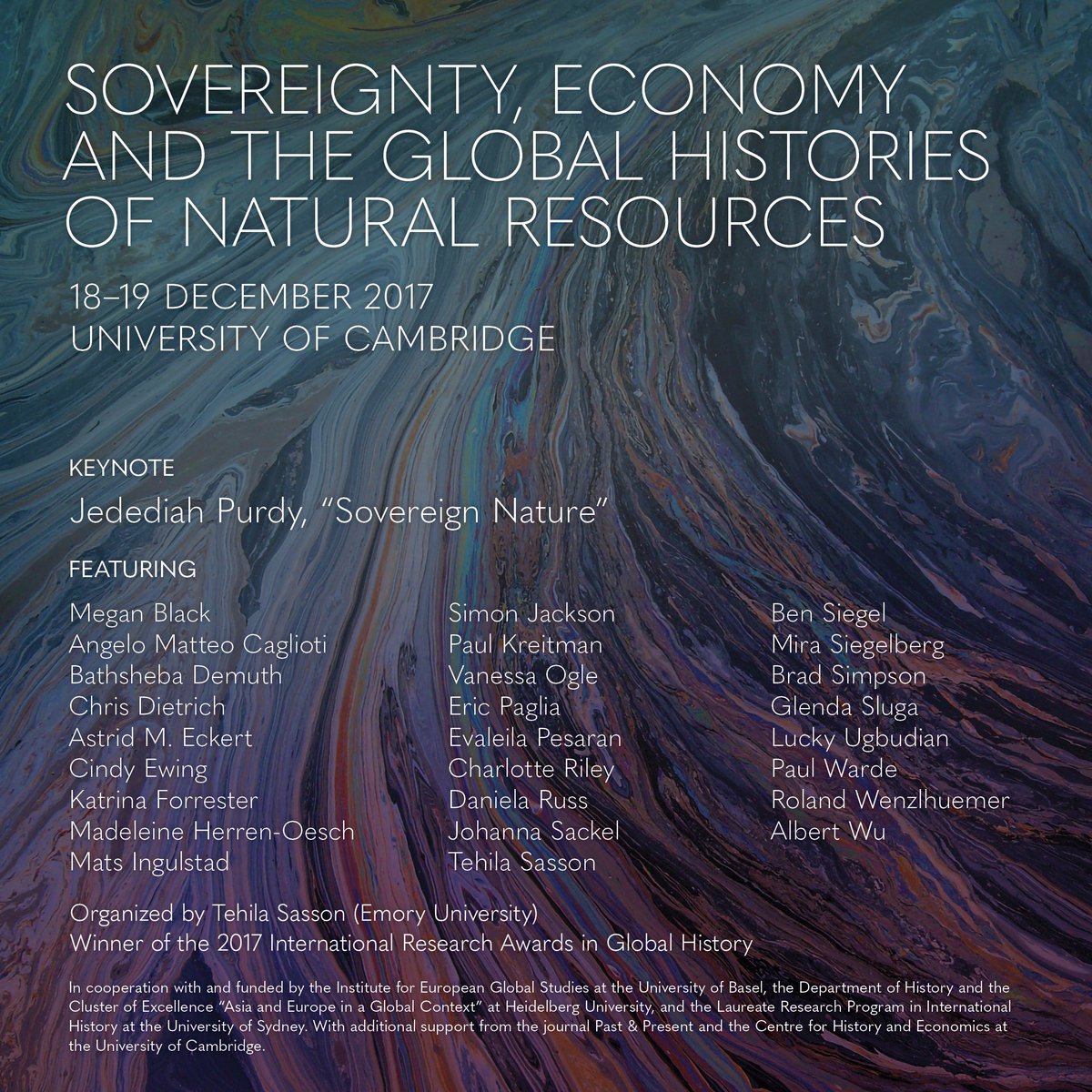
An International Symposium sponsored by the International Research Award in Global History,
Universities of Sydney, Basel, and Heidelberg
18-19 December 2017
Hosted by the Centre for History and Economics, University of Cambridge
Over the course of the nineteenth and twentieth century natural resources have given shape to the history of sovereignty, law, and commerce across the globe. The struggle to protect, own and extract natural resources has mobilized local authorities, national agencies and international bodies. The Standing Rock water protectors are perhaps most well-known recent example of such histories, but is certainly not the only one. From disputes over social and economic rights to dueling religious and economic understandings of resources and their value, things like carbon, gold and water have determined the lives of national and local communities.
This international symposium invites scholars to examine the history and political ecology of various natural resources – animal, vegetable, or mineral —in the modern era. It asks how natural resources such as carbon, air, and water became the subject of legal, environmental, and economic forces over the course of the nineteenth and twentieth century and how, in turn, these resources have themselves came to shape national and international histories? Papers that focus on the role of local actors, rather than solely international elites, that examine contested spaces and resources beyond the Western Hemisphere, and take an interdisciplinary approach to this global history of natural resources will feature. Papers will address (but are not limited to) the ways in which the political ecology of various natural resources has come to shape:
Border disputes, international territories and national sovereignty
Minority and religious rights
Movement and mobility of people, animals and microbes
Social and economic geographies and spaces
Cultural practices and institutions
Technical expertise and knowledge
The role of nongovernmental and economic agents in local and national contexts
We are pleased to note that Professor Glenda Sluga is co-sponsor of this conference, which was the winning concept in an international competition. A copy of the poster is available here, and you can download the final program here.
